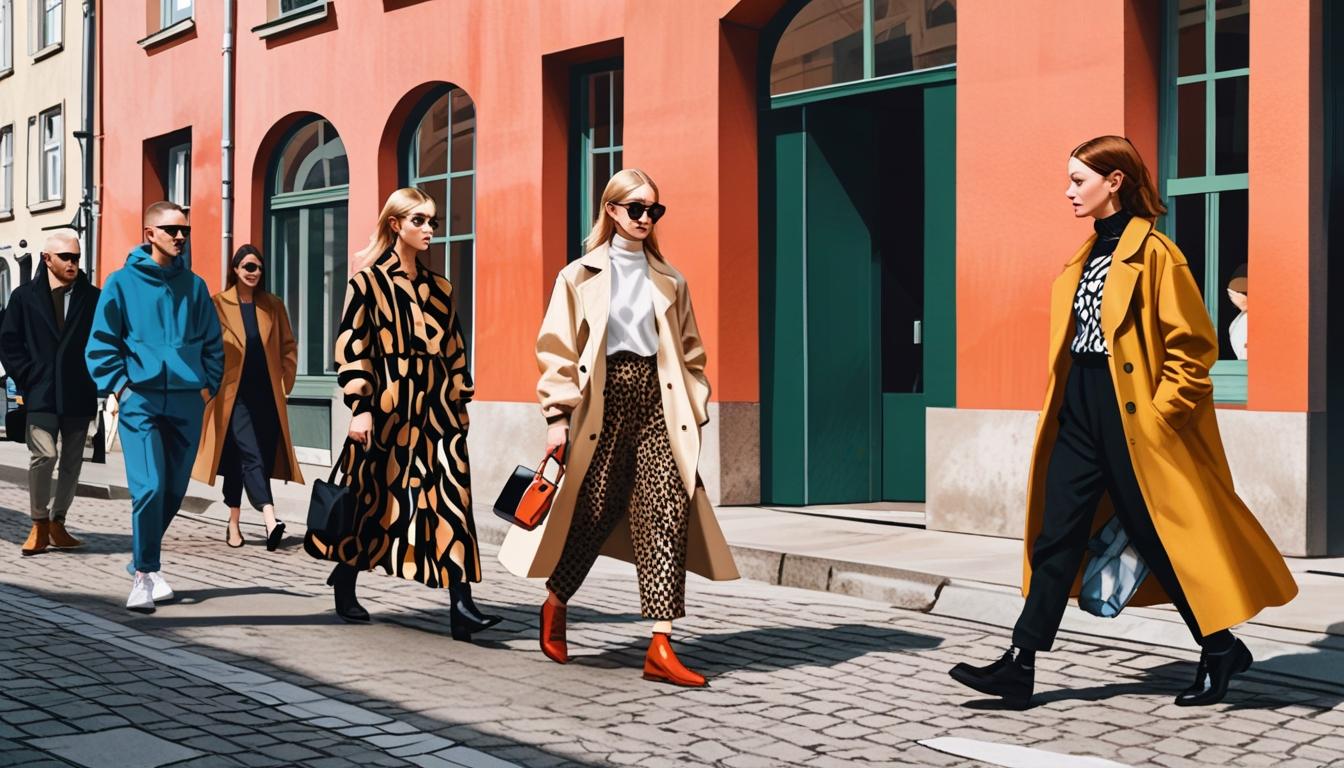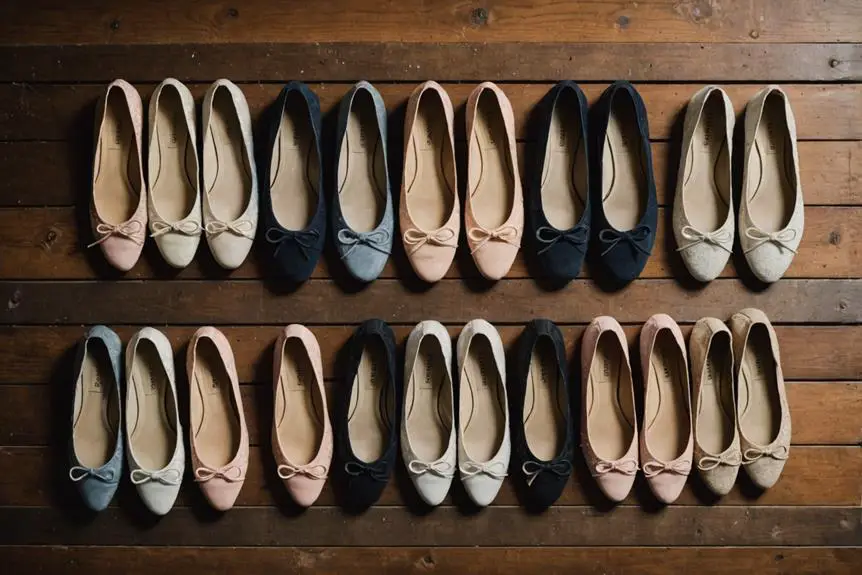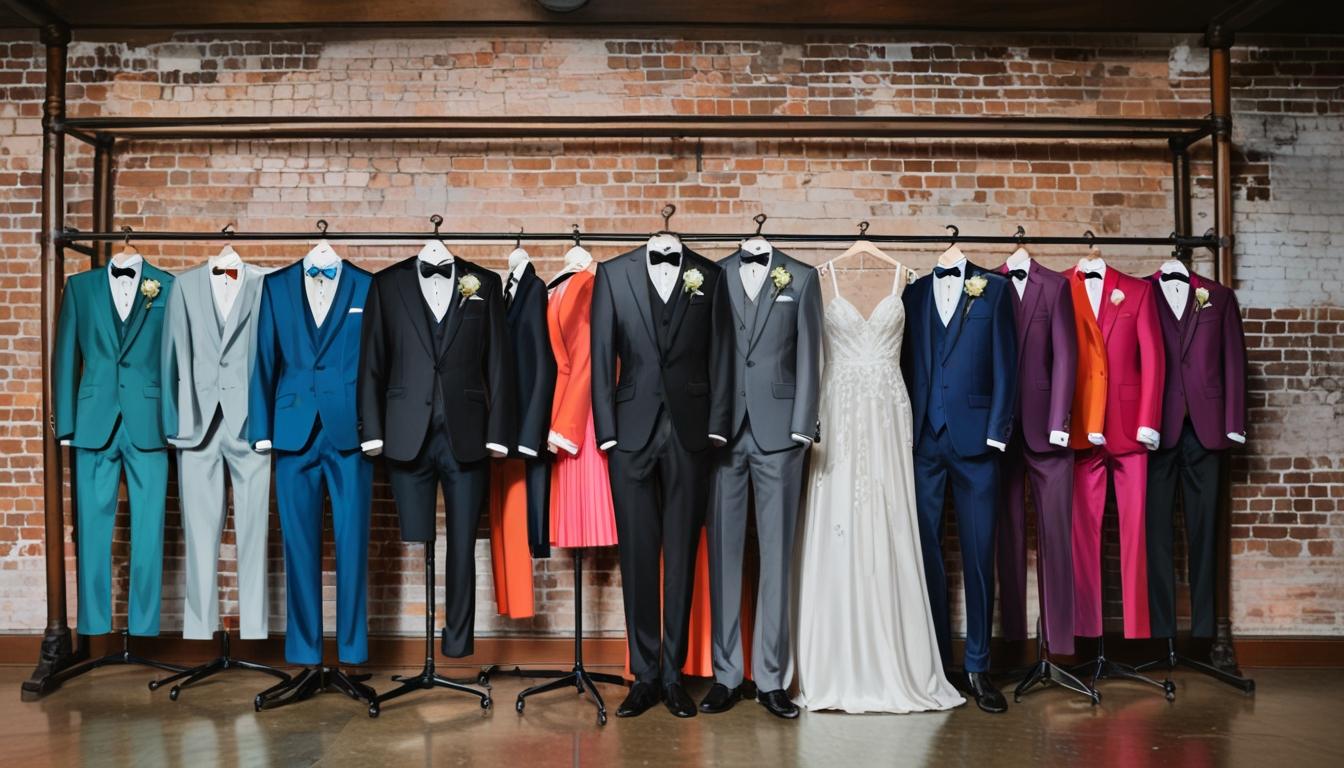Exploring the rise of Danish fashion, this article highlights standout brands that blend minimalism with creativity and sustainability, showcasing a diverse landscape rooted in heritage.
Danish fashion is gaining recognition for its clean lines, minimalist aesthetics, and innovative design approaches, blending elements of simplicity with complexity in a revealing display of creativity. A recent article by RUSSH highlights several standout brands from Denmark that encapsulate these qualities, each offering something unique to the often crowded world of fashion.
Among the prominent brands is Ganni, established by Ditte and Nicolaj Reffstrup. Renowned for its cheerful pastel palette and commitment to size inclusivity, Ganni has become synonymous with a blend of minimalist styles enriched with playful prints and layered styling. It has a B Corp Certification, emphasizing its environmental sustainability efforts.
Saks Potts, another noteworthy brand co-founded by Cathrine Saks and Barbara Potts, is characterized by its homage to 90s minimalism, epitomized by garments like the Foxy Shearling Coat. This brand aligns with the chic, effortless style associated with figures such as Carolyn Bessette-Kennedy.
A more avant-garde approach is evident in Ope?raSPORT, launched by Stephanie Gundelach and Awa Malina Stelter. This brand mixes French sensibility with a sporty Copenhagen edge, showcasing items like baby doll dresses and 90s-style Capri pants. The playful discord of styles reflects the dynamic fashion scene in Copenhagen.
The Garment focuses on timeless elegance, producing streamlined pieces such as silk dresses and knits that blend vintage aesthetics across different eras. Its signature Tanzania Dress evokes a sense of nostalgia, reminiscent of iconic styles seen in past fashion.
Cecilie Bahnsen’s designs have gained popularity for their ultra-feminine silhouettes and theatrical gowns, often seen on the likes of Ariana Grande. Bahnsen has established herself in the industry not just for her visual artistry but also for her approach to daily dressing, as demonstrated in her collaboration with Asics on a unique sneaker design.
For a more playful take, Stine Goya offers bold patterns and bright colors. Its designs, including cheerful checkerboard sweaters and utilitarian trousers, provide a sense of joy through fashion without sacrificing wearability.
Andersen-Andersen stands out in the knitwear category with its dedication to high-quality pieces inspired by Danish maritime traditions. The brand creates symmetrical knits like boatneck sweaters and sailor-style cardigans, emphasizing durability and style.
Emerging designer Nicklas Skovgaard, who launched his label in 2020, is noted for presenting his first collection at Copenhagen Fashion Week Spring 24. His use of drop waists and extravagant proportions reflects a promising future for the brand.
Another innovative take on knitwear comes from Amalie Røge Hove, whose collection contrasts traditional concepts with body-hugging silhouettes that carry an avant-garde edge. Her previous work with notable brands bolsters her creative approach and distinct vision.
P.L.N, a relatively new label founded in 2021, explores heavy leathers and a subcultural aesthetic that differentiates it within the Nordic fashion scene. The brand’s focus on material and individual expression aligns it closely with contemporary fashion discussions.
Designers Remix takes a sustainable route by reimagining deadstock fabrics into chic, wearable pieces. With over two decades in the industry, the brand emphasizes transparency and environmental responsibility within its supply chain.
For affordable yet experimental styles, Kernemilk, founded by Marie Mark, resonates with youth subculture influences, ensuring its pieces command attention and reflect individual expression.
Sophia Khaled’s collection offers another take on knitwear, introducing melancholic designs that echo a sense of nostalgia, while Skall Studio emphasizes simplicity and practicality through elevated basics, promoting an environmentally conscious ethos.
Rotate, a brand by Birger Christensen, targets party and special occasion wear, bringing a focus on playful dresses and vibrant styles, a blueprint for those looking to enhance their celebratory wardrobe.
Baum und Pferdgarten, recognized as a staple in Danish fashion, is celebrated for its bold prints and well-constructed wardrobe essentials, cementing its legacy since its founding in 1999.
Aiayu, which means ‘soul’ in the Bolivian language of Aymara, reflects deep respect for craftsmanship and ethical practices, partnering with artisans globally to create timeless pieces.
In the streetwear scene, the Copenhagen-based brand that began as a T-shirt company has grown to be an influential name in streetwear culture, maintaining a youthful and spirited approach in its offerings.
Malene Birger introduces a sophisticated take on Scandinavian style, combining bohemian and feminine elements suitable for a range of occasions.
Astrid Andersen, on the other hand, mixes luxury with sportswear, offering a unique perspective by merging high-quality fabrics with sporty designs.
Lastly, Birrot combines Korean traditions with Scandinavian minimalism, emphasizing sustainability through thoughtful design and production practices.
Caro Editions creates garments infused with joy and artistry, showcasing quality craftsmanship and a love for community.
The landscape of Danish fashion is rich and varied, showcasing a mix of heritage, innovation, and sustainability that continues to influence global fashion trends. From touring minimalism to playful maximalism and sustainability, these brands offer a glimpse into the evolving direction of Scandinavian style.
Source: Noah Wire Services





Yes! Finally something about sss.
casino en ligne francais
I’m not sure where you’re getting your info, but great topic.
I needs to spend some time learning much more or understanding more.
Thanks for excellent info I was looking for this information for my mission.
casino en ligne fiable
Heya exceptional website! Does running a blog like this require a great deal of work?
I have no understanding of computer programming however I was hoping
to start my own blog soon. Anyhow, should you have any
suggestions or techniques for new blog owners
please share. I know this is off topic nevertheless I simply
needed to ask. Thank you!
casino en ligne francais
WOW just what I was looking for. Came here by searching for sss
casino en ligne francais
Very quickly this web page will be famous among all blogging and site-building visitors,
due to it’s nice articles or reviews
casino en ligne fiable
I think this is one of the most vital information for me.
And i’m glad reading your article. But wanna remark on few general things,
The web site style is ideal, the articles is really nice : D.
Good job, cheers
casino en ligne francais
Every weekend i used to pay a visit this web site, because i want enjoyment, for the reason that this this web page conations genuinely fastidious funny data too.
meilleur casino en ligne
An outstanding share! I have just forwarded this onto a colleague who was doing a
little research on this. And he actually bought me breakfast due to the fact that I found it for him…
lol. So let me reword this…. Thank YOU for the meal!!
But yeah, thanks for spending time to talk about this issue here on your
blog.
casino en ligne
Hi, i believe that i saw you visited my blog so i came
to go back the favor?.I’m attempting to find things to enhance my website!I
guess its good enough to make use of a few of your ideas!!
casino en ligne
Oh my goodness! Incredible article dude! Thanks, However
I am having troubles with your RSS. I don’t understand
why I cannot subscribe to it. Is there anybody else getting identical RSS problems?
Anyone who knows the solution will you kindly
respond? Thanks!!
casino en ligne